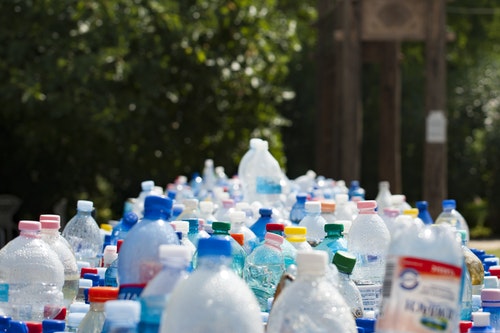
Curb Wasteful Spending

Are you aware of how much waste you’re creating, and how much money you’re throwing away in the process?
Spending money on unnecessary items is not only bad for the environment, but it can also add up over the course of a year.
Much of our consumption these days is based around convenience says Deborah Southon of budgeting and debt solutions provider Fox Symes. “People would rather buy an expensive plastic bottle of water than fill up a reusable bottle with tap water. However, we need to change our mindset about lazy habits. Ultimately, it’s much more inconvenient to be struggling to pay your bills or drowning in debt, so it’s worth saving money wherever you can. With the rising cost of living and wages stalling across the board, now’s the best time to be thinking about living a more socially mindful and less wasteful life by sticking to a clear budget.”
Try eliminating these wasteful ways and see what a difference it makes – by cutting down on these items you could save more than $4,600 a year.
Take away coffee
As many as three billion take away cups of coffee are sold each year in Australia for around $3 each. Aside from the hefty resources needed to produce them, the plastic waterproof lining of many paper cups means they can't be recycled with paper and cardboard and may contaminate a load, causing the whole lot to be sent to landfill. Invest in a reusable glass coffee cup instead.
Waste: $1,040 a year
Bottled water
Water in plastic bottles is one of the biggest wastes of the modern age. If you drink one litre a day from the tap, you'll pay about 75 cents a year. However, if you drink the same amount daily from single serve bottles you’ll be forking out around $1,300 a year based on a $3.50 per litre bottle. Plus, you’ll be throwing away 365 bottles! The Australasian Bottle Water Industry says all plastic bottles are made from recyclable materials. But according to Choice, less than half of PET (polyethylene terephthalate) plastic bottles are actually recycled, with the remaining 60 per cent going to landfill. The Australian Dental Association also recommends we just drink tap water as it contains fluoride, unlike some bottled waters.
Waste: $1,300 a year
Food
Shockingly, a NSW government study reveals each household actually throws away $1,036 worth of edible food each year including $343 in fresh food, $281 in leftovers and $94 in frozen food. Much of this is rotting away in packaging or is non-compostable. From now on, pledge to finish meals, store stuff properly and don’t leave food in the freezer to languish longer than the ice age.
Waste: $1,000 a year
Pre-packaged meat and veggies
Those polystyrene foam trays containing meat and some vegetables? Yeah, bad news. Many councils can’t accept them for recycling so stay away. For starters, there’s no reason why you can’t chop up veggies with a knife. Health experts are also now urging people to eat a lot less meat per week, so buy less and support local butchers who don’t use trays. Try spending $20 less on these items per week for a $1,000 plus saving.
Waste: $1,040 a year
Wet wipes
At some point everyone became transfixed by wet wipes which are around $5 a packet. But alarmingly, Aussies are flushing thousands of kilograms of incorrectly labelled wet wipes down their toilets every year, causing havoc in the country's water and sewage systems. Use good old toilet paper and reacquaint yourself with the humble reusable dishcloth for spills instead of splurging on a packet per week.
Waste: $130 a year
Light globes
Recycling light globes is tricky. Tubes that contain mercury need to be disposed through special local council recycling procedures. Incandescent globes and halogens made from low value and non-toxic materials, are also difficult to be recycled. Assuming you have around six bulb blow-outs a year at $6 a pop, a better option is to buy a LED long-lasting bulb. A typical LED that burns three hours a day can last about 13 years before it needs changing!
Waste: $30 a year
Baking paper, aluminum foil and plastic wrap
These things can all be recycled once they’re cleaned of contaminants, but why buy them in the first place? Instead of spending up to $8 every two months to replace all three, you can use reusable silicone sheets for baking nowadays and can also buy reusable wax covers for food which are much cheaper in the long run.
Waste: $50 a year
Paper towels
It’s very easy to over use paper towels because they’re so convenient. Although paper is technically recyclable, used paper towels are classed as contaminated so they’ll end up at the tip. What’s more, assuming you go through a $1.50 roll every two weeks, they’ll end up costing you $40 a year. Again, what’s wrong with a dishcloth?
Waste: $40 a year
If you have a tip on how to save, leave a comment below.

